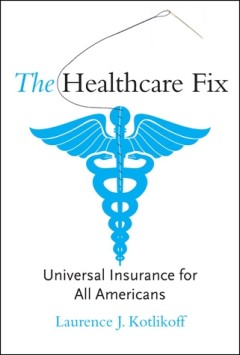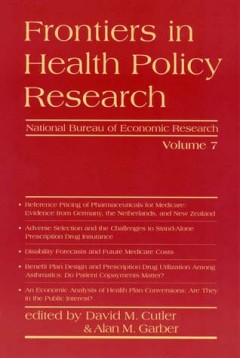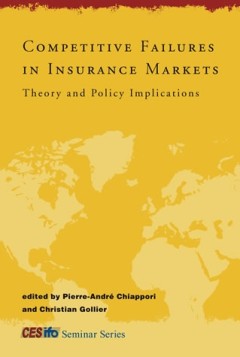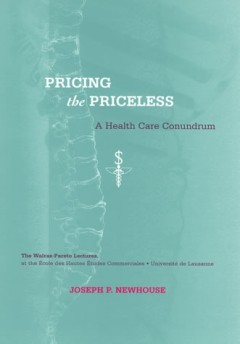Filter by

The Healthcare Fix: Universal Insurance for All Americans
A simple, straightforward, and foolproof proposal for universal health insurance from a noted economist.The shocking statistic is that forty-seven million Americans have no health insurance. When uninsured Americans go to the emergency room for treatment, however, they do receive care, and a bill. Many hospitals now require uninsured patients to put their treatment on a credit card which can sa…
- Edition
- -
- ISBN/ISSN
- 9780262277549
- Collation
- 1 online resource (116 pages)
- Series Title
- -
- Call Number
- -

Frontiers in Health Policy Research, Volume 7
"National Bureau of Economic Research."These papers were presented at the seventh annual Frontiers in Health Policy Research meeting held in Washington, D.C., in the summer of 2003.This series from the NBER presents new research by leading economists on current health care policy issues. The papers in this seventh volume, originally presented at the annual Frontiers in Health Policy Research co…
- Edition
- -
- ISBN/ISSN
- 9780262271059
- Collation
- 1 online resource (1 volume) :illustrations
- Series Title
- -
- Call Number
- -

Competitive Failures in Insurance Markets: Theory and Policy Implications
Leading international economists offer new insights on recent developments in the economic analysis of the limits of insurability, with particular attention of adverse selection and moral hazard.Risk sharing is a cornerstone of modern economies. It is valuable to risk-averse consumers and essential for investment and entrepreneurs. The standard economic model of risk exchange predicts that comp…
- Edition
- -
- ISBN/ISSN
- 9780262270182
- Collation
- 1 online resource.
- Series Title
- -
- Call Number
- -

Pricing the priceless :a health care conundrum
The health care industry differs from most other industries in that medical pricing is primarily administered by the government and private insurers and in that it uses several types of contracts. Providers may receive a fixed sum for all necessary services within a given period of time, for the necessary services to treat a given condition, or for each specific service. The industry is changin…
- Edition
- -
- ISBN/ISSN
- 9780262280600
- Collation
- 1 online resource (viii, 258 pages) :illustrations.
- Series Title
- -
- Call Number
- -
 Computer Science, Information & General Works
Computer Science, Information & General Works  Philosophy & Psychology
Philosophy & Psychology  Religion
Religion  Social Sciences
Social Sciences  Language
Language  Pure Science
Pure Science  Applied Sciences
Applied Sciences  Art & Recreation
Art & Recreation  Literature
Literature  History & Geography
History & Geography